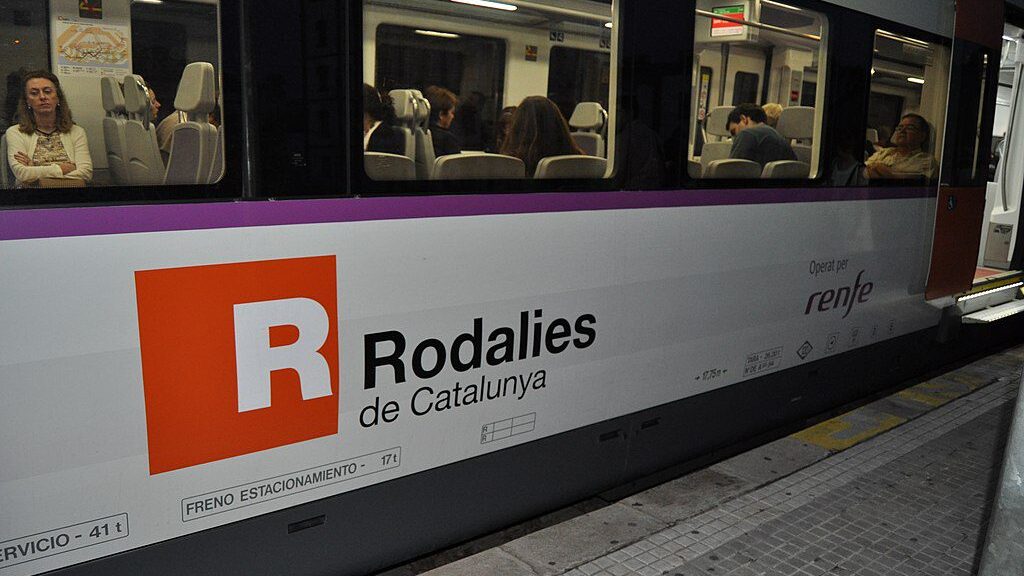
Photo: JT Curses, CC BY-SA 4.0, via Wikimedia Commons
Two serious robberies of copper wires have left Catalonia’s regional train service in a shambles.
In the early hours of Sunday, election day for the region, the theft of a large amount of wire cables in a strategic area for train traffic paralyzed six train lines that connect Barcelona, the Catalan regional capital, with its surrounding area, causing a general breakdown in the regional train service. Two of the lines were operating again by Monday but buses had to be put in place to substitute train service on the rest of the lines. Costs to repair the damage are estimated at some 15 million euros. It could take up to two months to get the trains running at full service again.
Then on Tuesday, another robbery of copper wires affected two more train lines.
Sunday’s incidents had already led to political finger-pointing. Oscar Puentes, minister of transport in the central government, suggested it was an act of sabotage. Catalan separatists blamed Madrid for underinvesting in the region, a false premise as Catalonia receives proportionally the highest amount from the government’s budget compared to the rest of Spain’s regions. Other politicians blamed the Catalan regional government and police force for not preventing crime in the region.
At the moment, the central government holds ultimate responsibility for operating regional trains throughout the country, however the Catalan government has been in charge of the day-to-day running of the region’s medium-distance and commuter trains since 2010. This may not be the case for much longer though, as the government of Socialist prime minister Pedro Sánchez promised Catalan separatist parties last year to give the region near-full ownership of the regional trains and infrastructure as part of the pact to support his government in the national parliament.
That this will improve the situation seems unlikely as the regional police force, Los Mossos d’Esquadra, are already responsible for law enforcement in the region. As it stands, Catalonia suffers a disproportionate amount of vandalism against its train service. More than 50% of all vandalism against the Spanish railway network—robberies, obstacles on the tracks, stone throwing—occurs in Catalonia, according to data from the Ministry of Transport.
Between 2019 and March 31, 2024, Spain’s train network registered 11,151 incidents affecting security, with 52.1% of the crimes occurring in Catalonia (5,805), a number disproportionately large for the amount of national territory the region takes up.
Within the region, the Barcelona province is the epicenter of the crimes. In the last five years, vandalism of trains in the province amounted to 3,621 incidents, representing 32.5% of the national total and 62.4% of those registered in Catalonia.
The high rate of vandalism becomes clear when compared to Madrid, the Spanish capital and the country’s largest city. Compared to Madrid, Catalonia has 2.8 times more incidents against trains. Madrid has suffered 1,274 incidents, which amount to 11.4% of the total in Spain.
Meanwhile, the areas bordering Barcelona have almost as high rates of vandalism as Madrid. The Tarragona and Girona provinces occupy third and fourth place in the number of incidents, proportionally sitting at 10% and 8.5%, respectively. In other words, three Catalan provinces sit in the top four places in the country regarding these kinds of crimes.
The incident is part of an ongoing pattern in Catalonia—the rising rates of crimes in the region in parallel with the rise of separatism. Such is the situation that even separatist parties included addressing crime as part of their campaign platforms for the elections they lost last Sunday.
